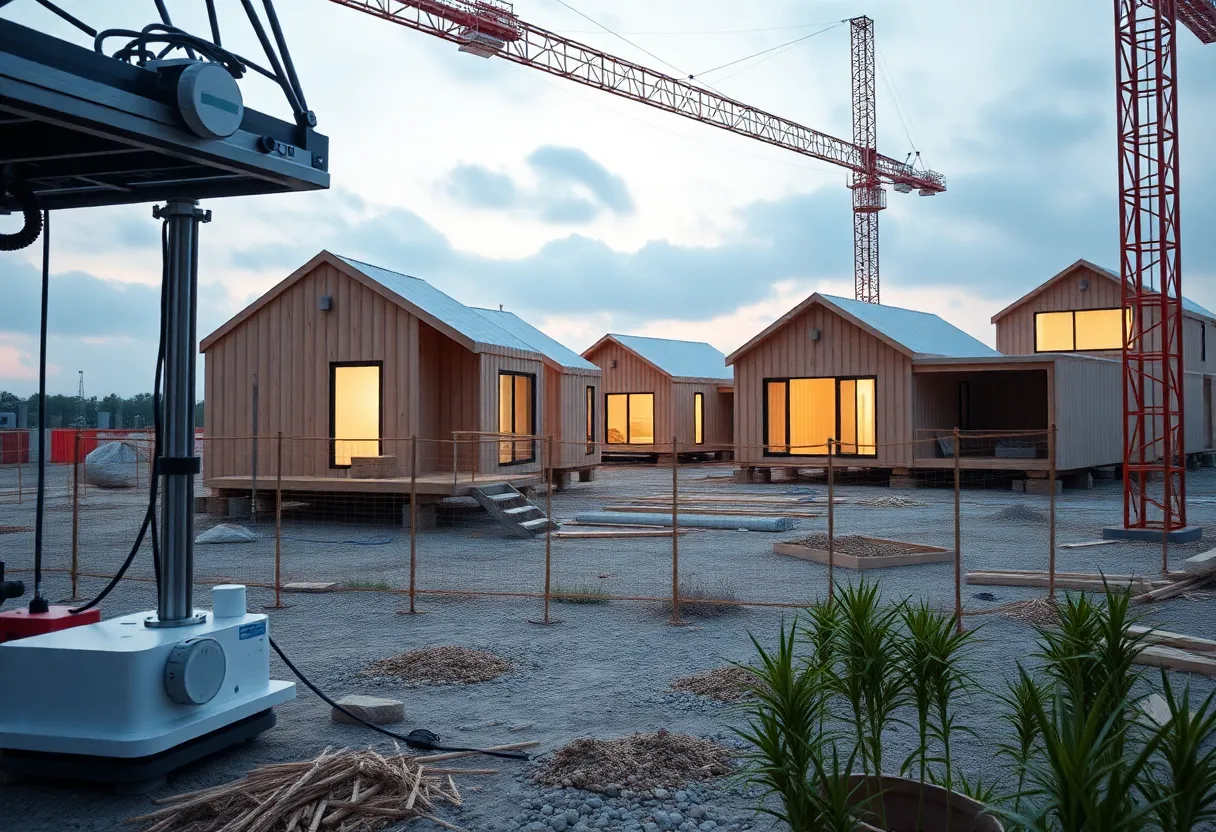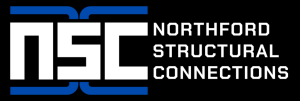

Utilizing advanced construction methods to solve the housing crisis
Article Sponsored by:
Northford Structural Connections (NSC) specializes in innovative engineering solutions for enhancing the safety and durability of precast concrete structures. Their patented products, including the Double-Tee Flexible Connection (DTFC) and Double-Tee Connection Pro (DTC Pro), address critical challenges like fatigue, corrosion, and seismic resilience. With a focus on quality and longevity, NSC provides advanced connection systems trusted by industry professionals for both retrofitting and new construction projects.
As the housing crisis escalates in America with rising rental prices, builders are adopting innovative construction methods such as 3D printing and sustainable materials, like hemp, to enhance housing supply and affordability. Companies like Fading West are leading the way with modular homes built offsite for quicker assembly. While these methods promise to improve construction speed and cost-efficiency, challenges including initial setup costs and regulatory hurdles remain. Educational initiatives are also emerging to equip professionals with skills to tackle the growing housing affordability issue.
The housing crisis in America is intensifying, with skyrocketing rental prices leaving many families struggling to find affordable options. In response, builders are increasingly turning to innovative construction methods designed to boost the housing supply and mitigate the affordability issue that plagues various communities across the country.
Some of the fascinating innovations gaining traction include 3D printing technology, indoor factory assembly of homes, and the incorporation of sustainable materials like hemp into building practices. These advances have the potential to transform traditional construction, making it faster and more cost-effective.
Industry experts emphasize that had these technologies been more aggressively adopted decades ago, they could have significantly alleviated the current housing crisis that America faces. In particular, the use of 3D printing in constructing homes allows for quick builds and the inclusion of creative designs, such as curved walls, which were previously difficult to achieve in conventional construction.
Among those leading the charge in innovative home building is Fading West, a builder based in Colorado that has successfully produced over 500 homes in just three years. These modular homes are built to 90% completion at a factory before being transported to their final destinations. Impressively, homes can typically be ready for move-in within six weeks of delivery, and the construction process only takes about 5 to 7 days. This rapid construction process has the potential to significantly reduce the prices of homes, addressing the urgent need for more affordable housing.
Fading West primarily focuses on providing homes for workers in upscale mountain towns like Eagle, Colorado, where housing prices remain extremely high. Their approach includes constructing both multifamily and single-family homes, which cater to a variety of living situations.
However, transitioning to modular and manufactured homes isn’t without its hurdles. The initial setup cost for a factory capable of producing these homes is substantial, and local building codes can complicate the process further. While manufactured housing, built on a chassis similar to trailers, has become more widespread in the U.S. — with about 100,000 units shipped in 2024, up from 60,000 a decade ago — annual estimates for modular home construction remain disappointingly low, below 20,000 units.
An exciting development in construction materials is the rise of hemp, particularly in the form of hempcrete. This mixture, made from hemp stalks and lime, boasts properties such as being fire-resistant and resistant to mold growth. Efforts are underway to create versions of hempcrete without the reliance on traditional wood studs, increasing its viability as a sustainable building material. Given that hemp can grow much faster than trees, its further incorporation in building practices could offer a significant environmental advantage.
Despite its promise, the expansion of hemp-based construction faces challenges, including the legality of hemp cultivation and the high costs associated with the equipment needed for processing.
Recognizing the urgency of the affordable housing crisis, institutions like the Affordable Housing Institute at Metropolitan State University of Denver have been established to provide training in affordable housing finance, property management, and resident services. With significant funding to support this initiative, the institute aims to equip professionals with the skills necessary to combat housing affordability issues that have seen prices increase by 60% since 2017 in Denver alone.
Research indicates that around 115,000 households in Denver allocate more than 30% of their income on housing costs, while the number of families experiencing homelessness in the city has surged to over 3,100.
Moreover, the long-standing commitment of organizations like FHLBank Topeka, which has dedicated a portion of its income to affordable housing projects since 1990, reflects a collective effort to create sustainable solutions for those affected by the housing crisis.
As builders and local communities explore these innovative construction methods and educational initiatives, there is growing hope that they may provide effective responses to the urgent housing needs faced by millions of Americans. It remains to be seen how quickly these innovations can scale up to meet the demands of a rapidly evolving housing market, but the fundamental changes underway represent a crucial step in the right direction.
Exploring Hatteras Island Real Estate Trends
Residents Express Concerns Over Affordable Housing in Dare County
Outer Banks Home Prices Surge to New Heights
KD Hill’s Affordable Housing Initiative: A Community Solution
Rodanthe Faces Rising Surf: Homes at Risk
Housing Shortage Creates Challenges for Workers and Tourism in Kitty Hawk
Outer Banks Community Embraces Resilience and Sustainability
Rodanthe, North Carolina: A Community Facing Coastal Erosion Crisis
Housing Crisis Deepens in Outer Banks
North Carolina Cities Experience Rapid Growth in Home Prices

Concrete Strength • Metal Resilience • Connecting Futures
Phone: (203) 777-0751
Email: admin@nscclips.com
News Summary Columbia University welcomes Claire Shipman as its new acting president amid Congressional hearings…
News Summary The detention of an international graduate student from the University of Minnesota by…
News Summary The U.S. Institute of Peace (USIP) faces significant upheaval as the Trump administration…
News Summary On March 29, 2025, widespread protests broke out across the U.S. and parts…